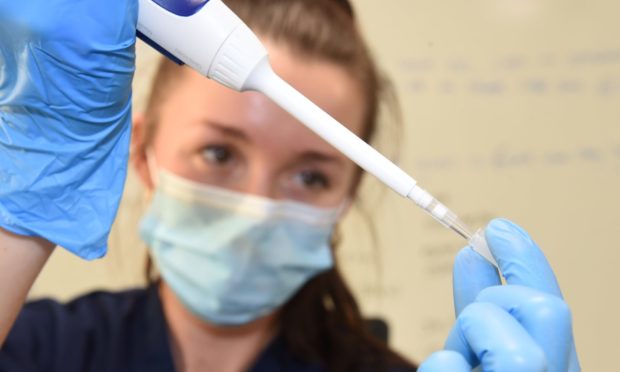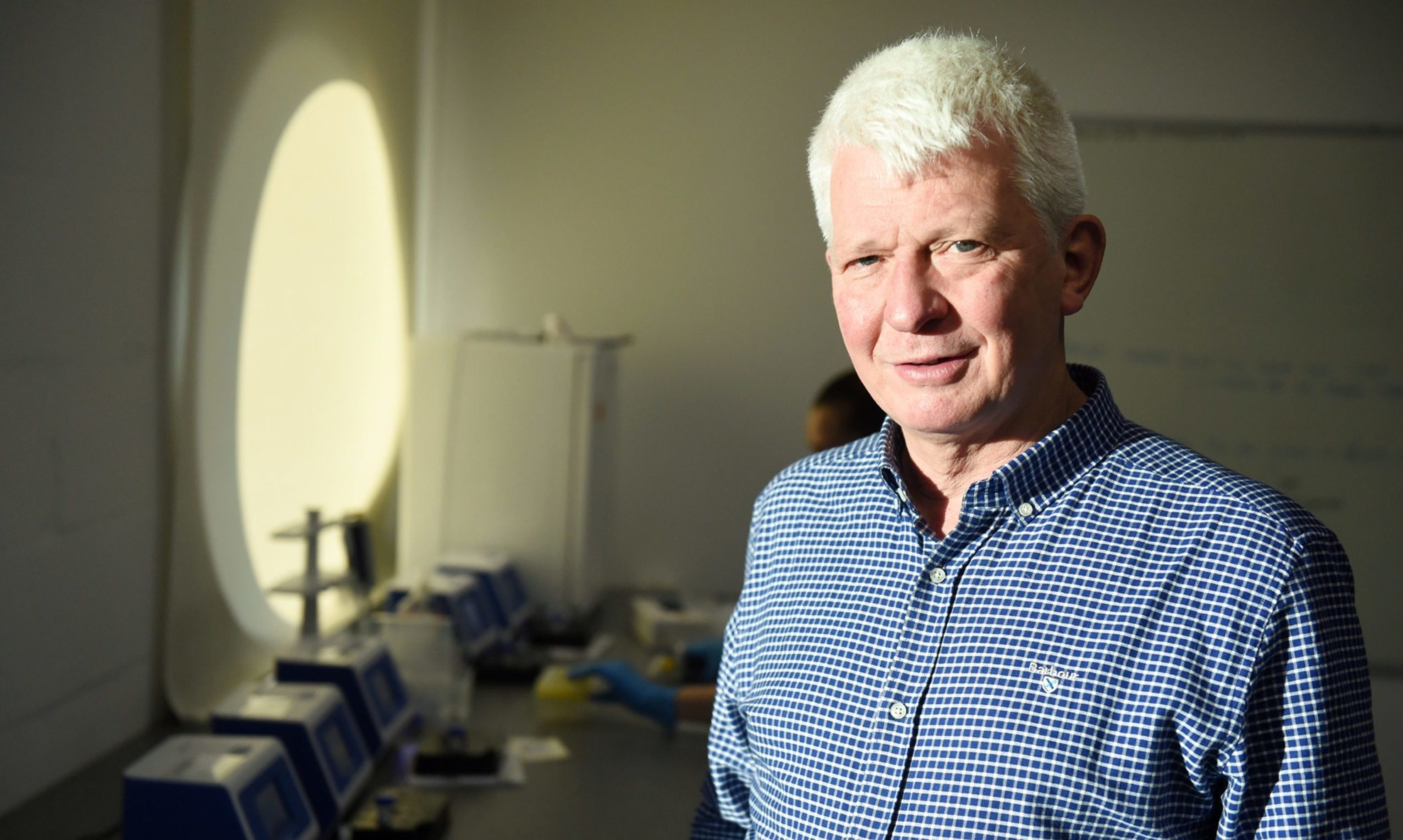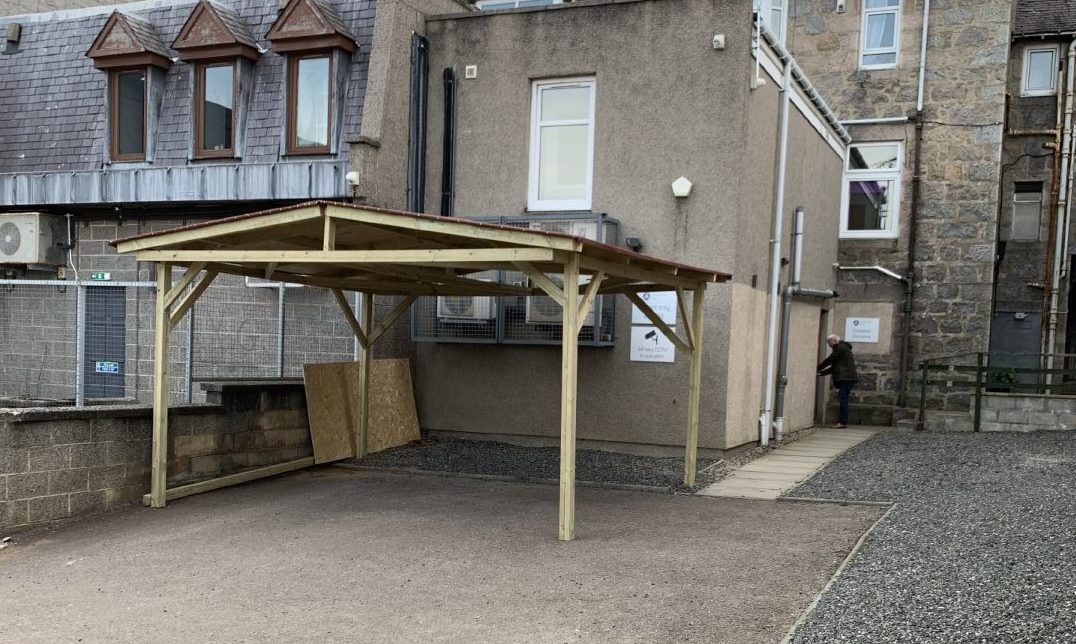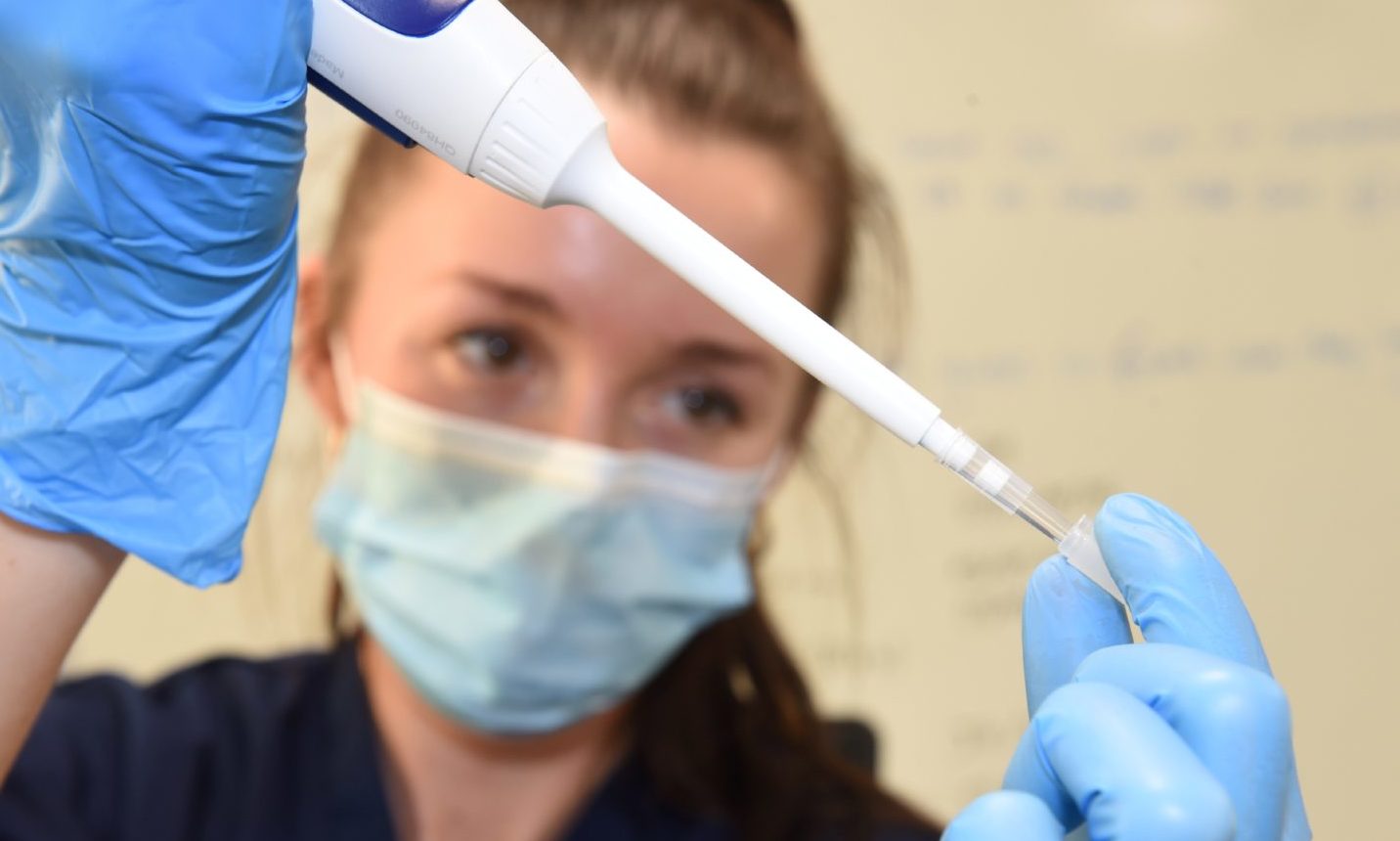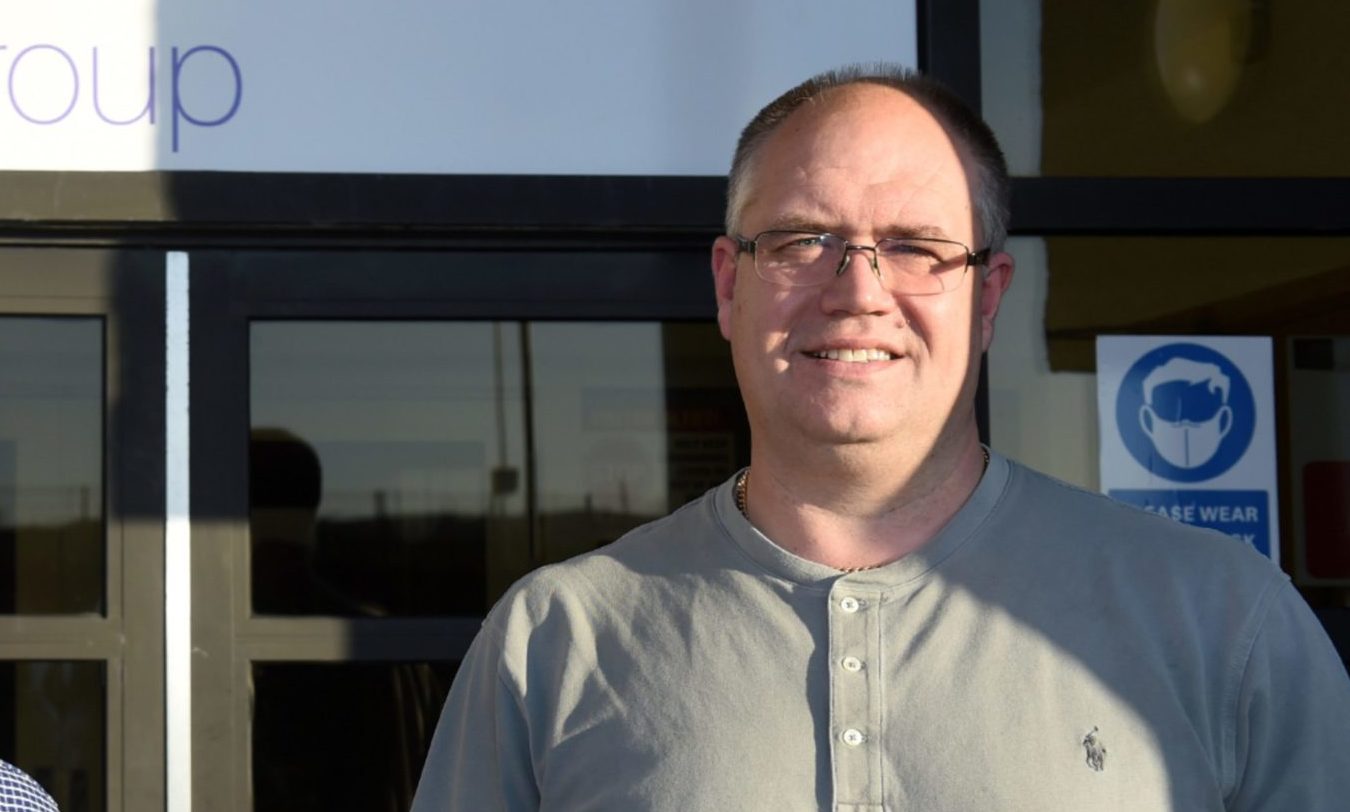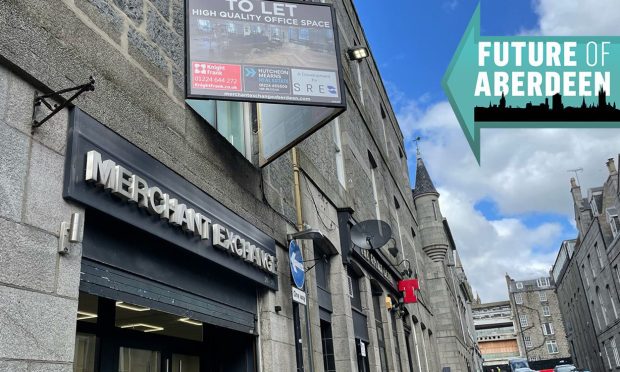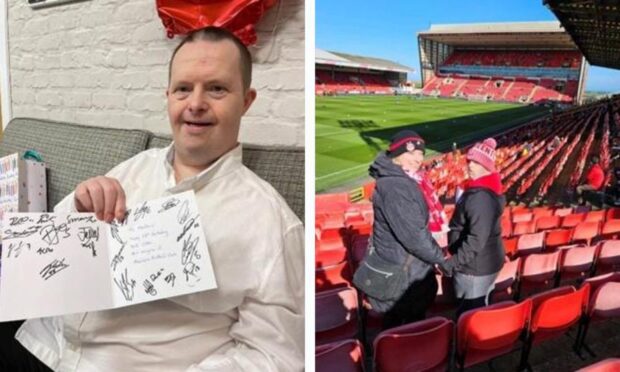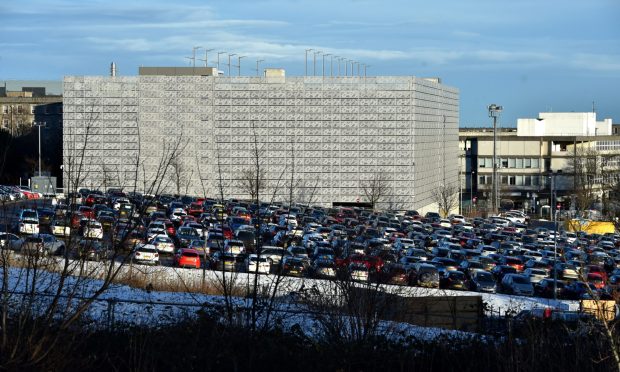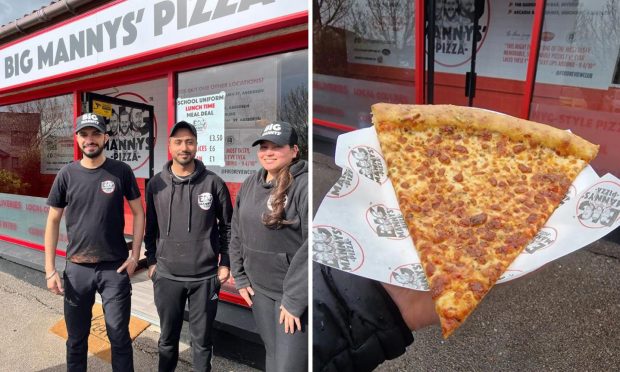Every day, hundreds of coronavirus tests are processed at a clinic in Dyce, Aberdeen.
Customers arrive for an appointment, have a sample taken then get their results in a matter of minutes.
But at the beginning of the year, before the name Covid-19 had even been coined by the World Health Organisation, an operation like this was not even under consideration.
As the pandemic took hold, TAC (The Aberdeen Clinic) moved its testing procedures from a wooden gazebo in a car park, to “four machines in the corner” of an oil firm gym, to taking over a city office block.
Founded in 2013, the firm offers occupational health and NHS services including gastroenterology and general surgery.
And with the impact of coronavirus looming, Elgin-born clinical director and consultant surgeon Ken Park was concerned not only for people’s health but also his business.
‘This is going to be a disaster’
“At the beginning of the year we were thinking ‘this is going to be a disaster, everything is going to stop’,” he said.
“But we knew a test had been developed that could be used to prevent people going into an environment and taking in Covid.
“Then, when I was in the car one day, a friend phoned me and said he was organising a big conference for The British Society Of Gastroenterology.
“He was pulling his hair out because this was a big thing and going to cost a lot of money.
“I put two and two together and thought we could probably try and test guests going in to the conference.”
Mr Park added: “Long story short, it didn’t happen; but it got me thinking we could use it for people being sent to an oil rig or a boat in an enclosed space.
“We had discussions with some of the operators and that’s what we started doing – and it worked.”
Rapid growth
In March, TAC erected a wooden gazebo of in the car park of its facility in Cults.
From there, patients were able to park up and get swabbed as part of a coronavirus test.
Every evening a courier van would arrive to ship the samples to a lab in Leicester, turning around results within 48 hours.
And while staff were “keeping up well” with demand, the initiative expanded and they began processing their own tests from the “corner” of a gym in an oil firm’s office.
TAC has now set up a fully-fledged centre at its premises in Dyce, allowing people to receive a test and the results under one roof.
Starting work from 5.30am, in order to cater for the energy workers requiring tests before they can take a helicopter offshore, the on-site lab is a hive of activity for around 12 hours each day.
Mr Park said: “We started with tens of tests per day and have turned it around and now we can do up to 1,000 a day.
“We’ve got around 96% of results out within eight hours.
“As the developments in technology started to speed up, they’ve created a number of tests that can get you a result in a matter of minutes.”
Collective approach
The healthcare firm runs more than a dozen machines running PCR (polymerise chain reaction) tests in its lab to check for virus RNA.
Staff mix the patient’s sample with a reagent liquid, which is then analysed for evidence of coronavirus.
“With this we can get a result back to people in half an hour,” Mr Park said.
“They’re at a similar sensitivity to the main lab tests, it’s just that we can only do one at a time.
“In the labs they can do batches of 18, and sometimes three batches at once.”
TAC has also invested in other machinery, including some which can provide a result in just 12 minutes by searching for specific coronavirus proteins.
Their use has been hampered by a shortage of the reagents necessary to complete the process across Europe, however.
But Mr Park is positive that strides to further advance this technology will continue to be made.
“All of the literature has been very open,” he said.
“If you were working on a vaccine for something, you would probably keep it in your own silo until you were about certain it would be ready.
“But when I’ve read the medical journals people are being pretty open at bringing things forward and sharing expertise.
“All too often you can get a bit of intellectual snobbery with ‘it has to take five years’ or ‘it has to be done this way or that way’.
“But this has been a positive, collective approach and it just shows what can be done.”
‘Demand will be overwhelming’
Phil Webb, the chief executive of parent company C7 health, which purchased TAC in a £1.5 million deal last year, said: “It has been hectic, but great.
“While everyone has been locked down we’ve been really busy.
“It’s keep the North Sea oil industry going as a number of people would have stopped going offshore otherwise.
“Everyone is trying to keep everyone safe, looking for improving treatments and the roll-out of the vaccine.
“But healthcare is going to be even busier as we’ve lost six months of treatment time because everything went on hold.
“There’s going to need to be a massive amount of prioritisation because the demand is going to be overwhelming.”
